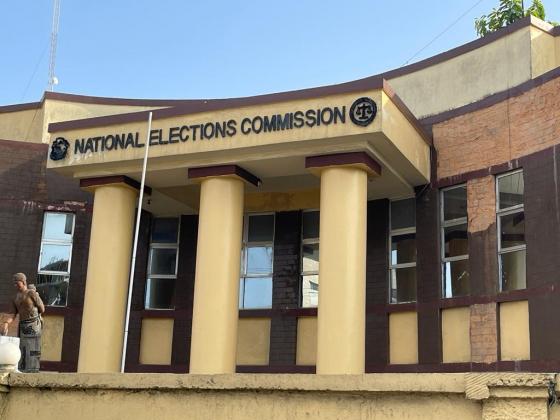Liberia: NEC Kicks EKEMP Out, But…

... The company used laptops and biometric tablets to print sample biometric voter cards but failed to conduct deduplication away from internet connectivity — an area that has now become a point of contention.
The Chairperson of the National Elections Commission has submitted a “no objection,” request to the Public Procurement and Concession Commission (PPCC) to award a dutch company the contract for the supply and delivery of biometric equipment, and software for the 2023 voter registration exercise.
The selection of Laxton, however, has been rejected by some of the other elections commissioners, who claim that the decision was made once again unilaterally by the Chairperson, Davidetta Browne Lansanah.
“She has hijacked the process. She recused herself from the process when she returned from Nigeria recently and we were proceeding rightfully but she has again forced her way in by unilaterally selecting Laxton, a company that fell short of meeting certain basic requirements as provided in the Commission’s bid document,” said one of the Commissioners who asked for anonymity.
Lansanah had at some point recused herself from the procurement process, leading to Cllr. Teeplah Reeves, Co-chair of the Commission, to preside over discussions that would have led to the selection of a company to procure biometric materials, technical support and training for next year’s elections.
While the NEC Board did not have a meeting to review the decision, the Daily Observer is reliably informed that the NEC chairperson informed her colleagues about the decision to select Laxton.
The recusal came after Lansanah had failed to convince the PPCC that EKEMP — a company which she had preferred — was qualified to do the job as requested.
Laxton, the dutch company who claimed on its website to have been trusted by over 300 government bodies around the world, has been selected in place of EKEMP, a Chinese company, which the NEC had earlier claimed to have won the bid for the supply of biometric equipment materials.
EKEMP lost the right to the bid after PPCC withheld its grounds, denying the electoral body’s request for no objection twice. This was based on EKEMP’s inability to print the PVC card on the spot as required by the NEC, and within time, which showed uncertainty on the usage of its equipment and raised doubts about its effectiveness.
This rigmarole leads to nearly three months of stalemate. The NEC is expected to begin the conduct of voter registration exercises by December 15, according to the updated elections timetable released by the electoral body.
But Laxton, during its bid demonstration, allegedly informed the NEC procurement panel that it would deliver materials in 147 days (approximately April 2023) as of the date of award of contract, a period that appears to be too far out of the appropriate timeline for the smooth conduct of the 2023 voter registration exercise.
The company also used laptops and biometric tablets to print sample biometric voter cards, but failed to conduct deduplication away from internet connectivity — an area which has now become a point of contention. The use of computers, instead of the biometric tablets, according to the NEC chair, was one of the reasons responsible for Laxton not being responsive.
Additionally, it is reported that Laxton has no local partner in Liberia and as such, trusting the company with the contract might lead to unforeseen hurdles with no immediate solutions.
With local technical support, a former Chairman of NEC disclosed, business with a foreign company becomes a reliable deal, most especially when the company have met all of the criteria as provided for in a bid document for NEC.
“This means [it would be] April 2023, before we conduct the registration process. Imagine this. It is an attempt to sabotage the entire electoral process. It is about greed,” the commissioner said. “It is about self and we are tired of this hauling and pulling.”
Lansanah, at a press conference on October 25, claimed then that Laxton lacks the capacity to pre-finance, a major requirement under the public procurement law and as reflected in NEC’s bid document, too.
Meanwhile, the joint venture Waymark and Mwetanna and the partnership HID Global and Professional Services International (PSI) as well as Elections Services International (ESI) were the next in line in terms of meeting the benchmark, each for consideration.
The Public Procurement and Concessions Commission (PPCC) recommendation to NEC was not a blanket statement but with specifics pointing to NEC doing the right thing.
PPCC, according to its letter to NEC then, conveyed that NEC should look among the remaining companies apart from EKEMP and select one that has met the criteria or was satisfactorily responsive.
